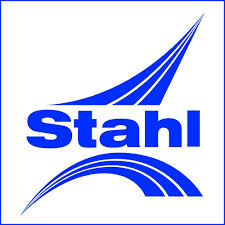 The German and European steel industries will continue to face inconsistent international climate policy conditions in coming years. This will be the case even if – as is currently planned – CO2 emission trading systems are introduced in individual countries or regions outside the European Union. This is the result of a study carried out by the Cologne Institute for Economic Research Consult (IW Consult) and commissioned by the German Steel Federation and the Düsseldorf branch office of the Industrial Union of Metalworkers (IG Metall). The study examined the development of emission trading systems and their significance for the steel industry in important competitor nations.
The German and European steel industries will continue to face inconsistent international climate policy conditions in coming years. This will be the case even if – as is currently planned – CO2 emission trading systems are introduced in individual countries or regions outside the European Union. This is the result of a study carried out by the Cologne Institute for Economic Research Consult (IW Consult) and commissioned by the German Steel Federation and the Düsseldorf branch office of the Industrial Union of Metalworkers (IG Metall). The study examined the development of emission trading systems and their significance for the steel industry in important competitor nations.
Together with the European Union, the countries looked at – China, India, Japan, Russia, Australia, South Korea, Brazil and the USA – account for 87 per cent of world steel production. Only Australia and South Korea have plans for binding national emission trading systems. Allocation of the CO2 certificates will be free-of-charge for the steel industries in these countries, and with considerably lower emission reduction demands than in the EU. Regional initiatives in the USA foresee no participation by the steel industry. Participation in Japan is voluntary. In other countries, such as Russia, there are no developments towards emission trading systems. Pilot projects in China and Brazil have only just started.
“The study shows that allocation in Europe free-of-charge and based on technically feasible benchmarks remains necessary,” Hans Jürgen Kerkhoff, President of the Düsseldorf-based German Steel Federation, commented on the results. “Otherwise the
steel industry faces the threat of losing its competitiveness against competitors working
without emission trading and CO2-related costs. We are still very far from having equal
competitive conditions internationally regarding climate protection.” “If emission trading led to a relocation of steel production away from Germany not only would the world’s climate not be helped but jobs would be threatened here,” fears Hannelore Elze, Manager of IG Metall’s Düsseldorf branch office. “The employees of the steel sector are working on reducing CO2 emissions and support uniform climate protection regulations worldwide.”
In the European CO2 emission trading system, allowances are allocated on the basis of
ambitious benchmarks and are currently free-of-charge to energy-intensive sectors in
international competition. This is intended to prevent any relocation of production and jobs as a consequence of one-sided cost increases not applicable in countries outside the European Union. The list of affected sectors, the so-called Carbon Leakage list, is to be reviewed on 31 December 2014 and defined again for a period of five years. The EU Commission has recently started a consultation on this topic.
The German Steel Federation and the Düsseldorf branch office of IG Metall ask the EU
Commission to recognise that international climate protection conditions have not changed during recent years and that the steel sector requires continued free-of-charge
allocation.
